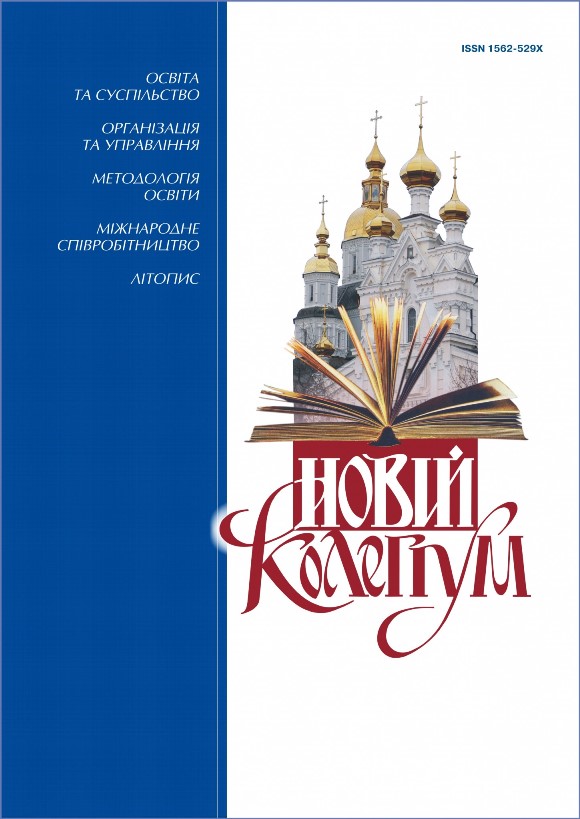Ways to increase of the training efficiency for higher education accessories in modern condition
DOI:
https://doi.org/10.30837/nc.2021.1.58Keywords:
dual education, motivation, remote technologies, competence, functional responsibilities, competitivenessAbstract
Current trends in the development of the education sector require significant changes in approaches, methods, techniques and tasks of training. The challenges that arise need to be addressed, which will make it possible to increase the competitiveness of higher education seekers after their graduation, and, as a consequence, to improve the competitiveness of the higher education institution itself. The tasks that arise are: a change in the approach to the educational process of research and teaching staff, which must consist in the interest of teachers themselves to improve the quality of educational services they provide; a change in the approach to the educational process of learners – students, listeners, cadets, etc. – that is, it is necessary to transform those who are taught into those who learn; definition of criteria for the effectiveness of education, which is obviously not only in achieving program learning outcomes.
The main criteria of efficiency of educational activity are formulated in the article. These criteria are obviously not only the amount and strength of knowledge and skills, competencies and program learning outcomes. Using only such criteria, it is impossible to fully assess the current requirements for the effectiveness of education. In the conditions of market relations, economic crisis, global mental restructuring, the main criterion for the effectiveness of training of the specialist is the ability to employ him in various positions after graduation, and possibly during training. What is more important is the ability of the job seeker to self-improve and master various competencies when changing functional responsibilities. That is, a higher education student must have a wide range of competencies, not only deep ones, which will enable him to develop under certain conditions in the performance of functional duties. Such tasks make it possible to solve the use of elements of dual education, distance technology using modern technological solutions and motivation of participants in the educational process to self-development.
The article concludes that the mutual combination of dual education with distance learning technologies should ultimately solve the urgent problem of training an experienced specialist with a high level of competence who will be able to perform production tasks without additional internship or training after graduation.
References
Лисечко В.П. Методи підвищення ефективності підготовки фахівців в умовах зменшення частки аудиторних занять // Проблеми організації та впровадження освітнього процесу в університеті за відповідними рівнями та ступенями : тези наук.-метод. конф. кафедр Українського державного університету залізничного транспорту. Харків, 2015. С. 79-80
Панченко С.В. Перспективи розвитку дуальної освіти при підготовці висококваліфікованих фахівців залізничного транспорту / С.В. Панченко, С.І. Приходько та ін. // Новий Колегіум. 2020. № 1. С. 36 – 47.
Концепція підготовки фахівців за дуальною формою здобуття освіти. Схвалено розпорядженням КМУ від 19.09.2018 р. № 660-р. [Електронний ресурс]. Режим доступу: https://zakon.rada.gov.ua/laws/show/660-2018-%D1%80.
План заходів з реалізації Концепції підготовки фахівців за дуальною формою здобуття освіти. Схвалено розпорядженням КМУ від 03.04.2019 р. № 214-р. [Електронний ресурс]. Режим доступу: https://zakon.rada.gov.ua/laws/show/214-2019-%D1%80.

